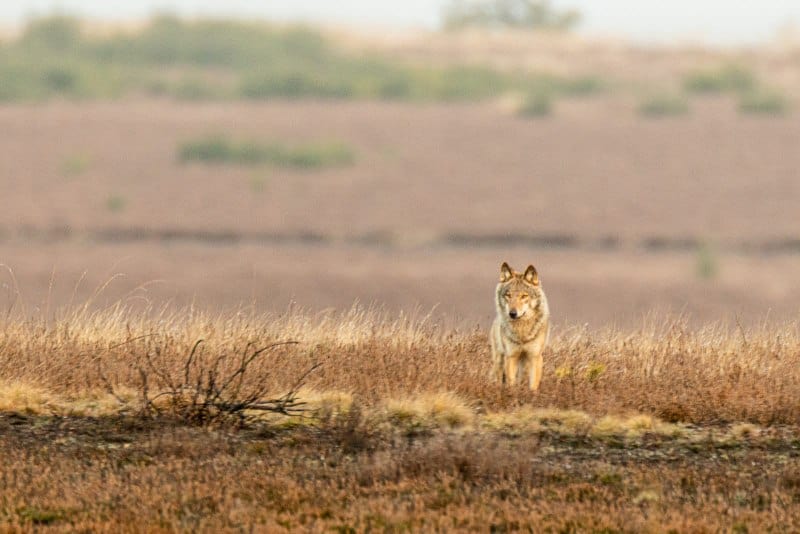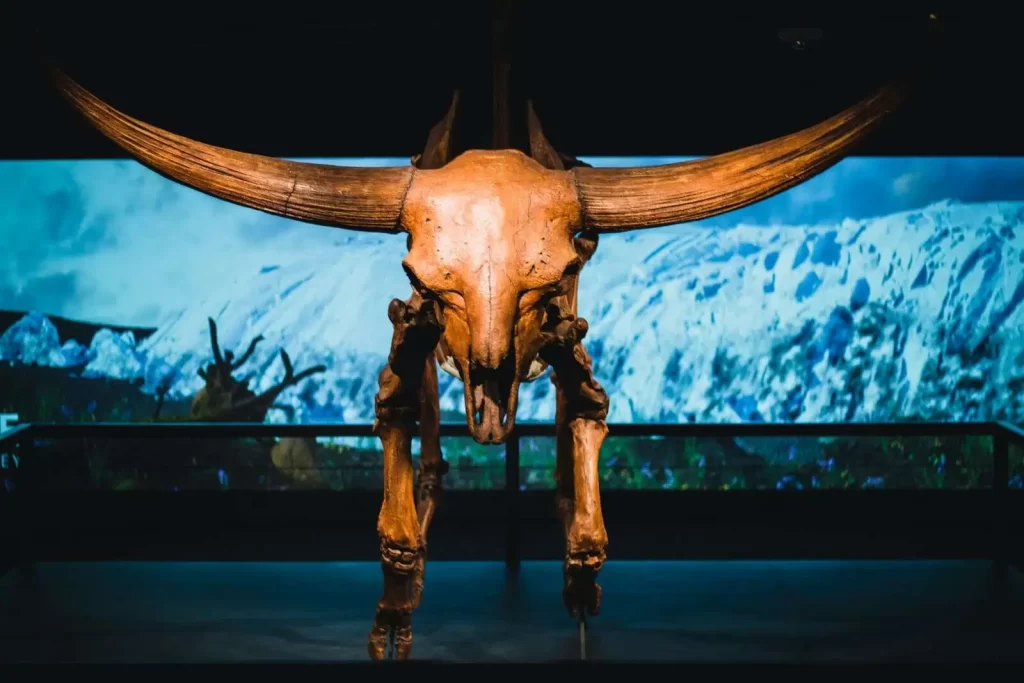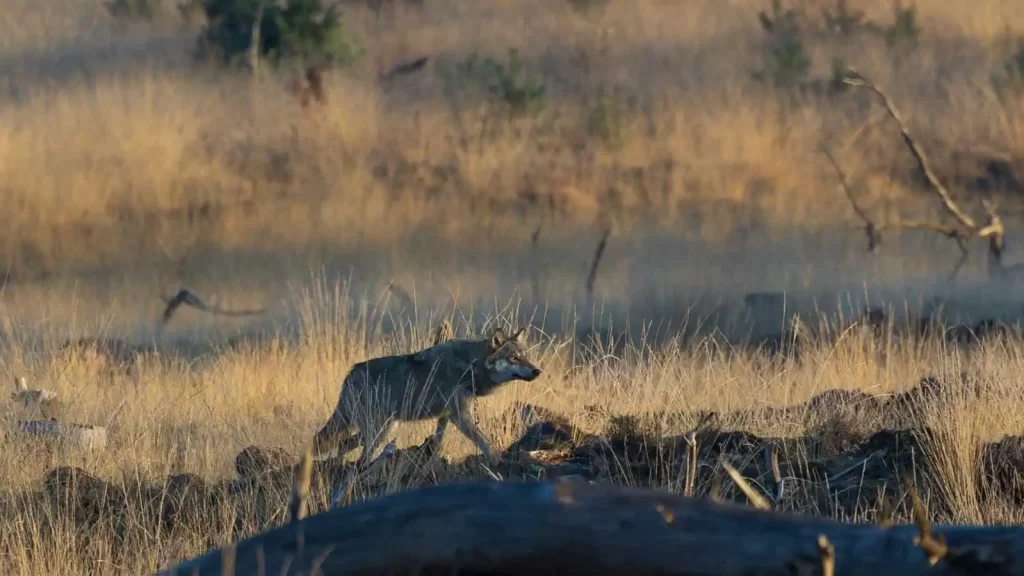Share:
Rewilding at the 12th World Environmental Education Congress
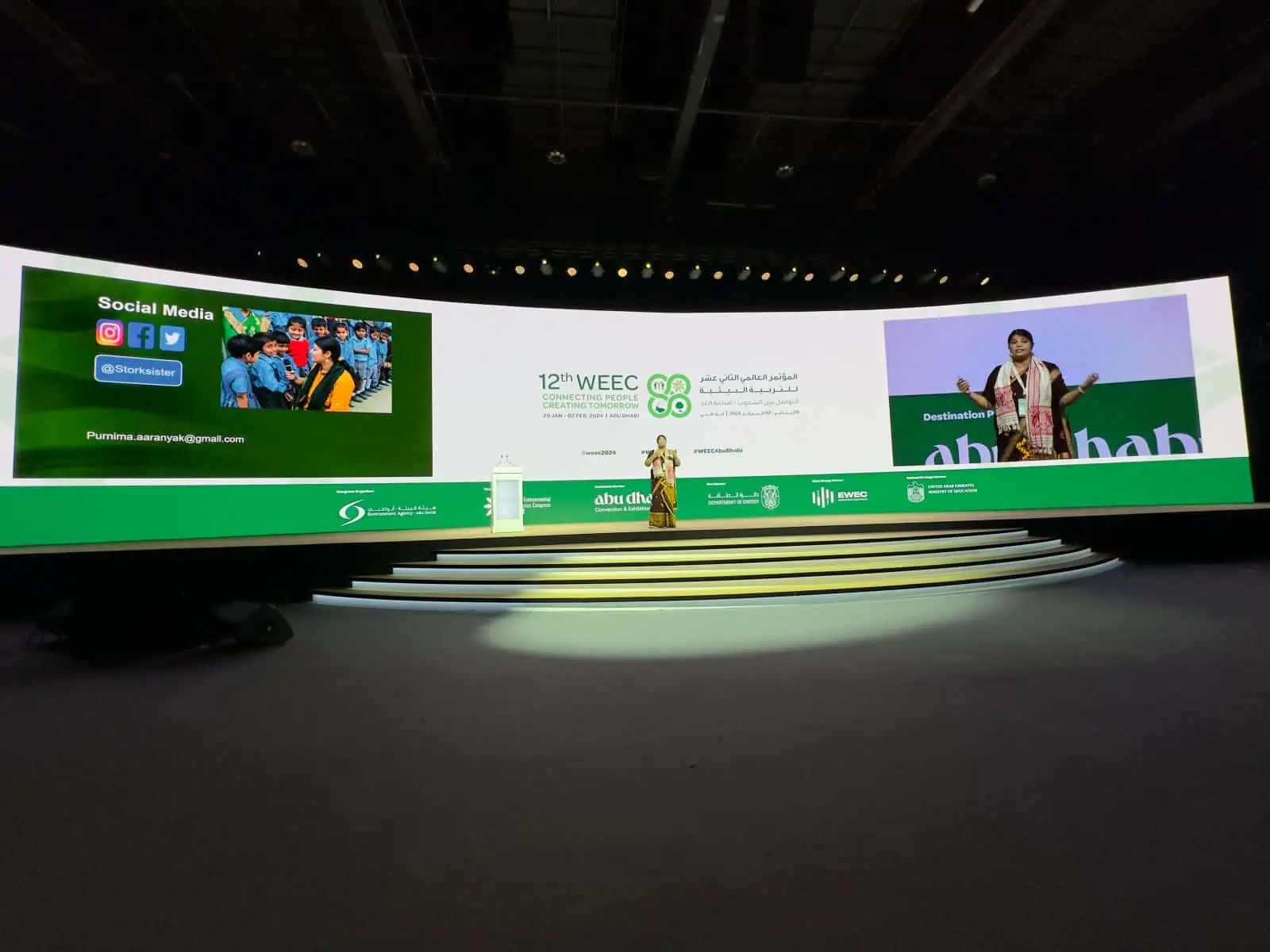
The Rewilding Academy had the privilege to actively participate in the 12th World Environmental Education Congress (WEEC2024), an event marked by profound dialogues, expanded horizons, and the continuous reinforcement of our global Environmental Education community.
WEEC 2024
WEEC2024, held from January 28th to February 1st, 2024, in Abu Dhabi, UAE, provided a platform for international discourse on education for environment and sustainable development. Over four days at the Abu Dhabi National Exhibition Centre (ADNEC), participants engaged in sessions and presentations that challenged conventional thinking in Environmental Education. From thought-provoking plenaries to practical workshops, attendees explored innovative ideas and actions towards environmental education and sustainable development.
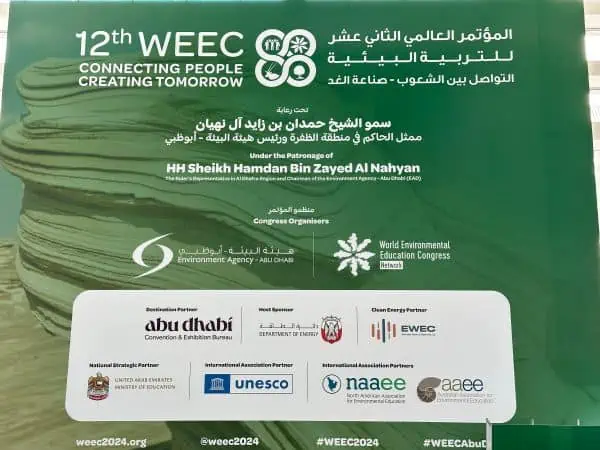
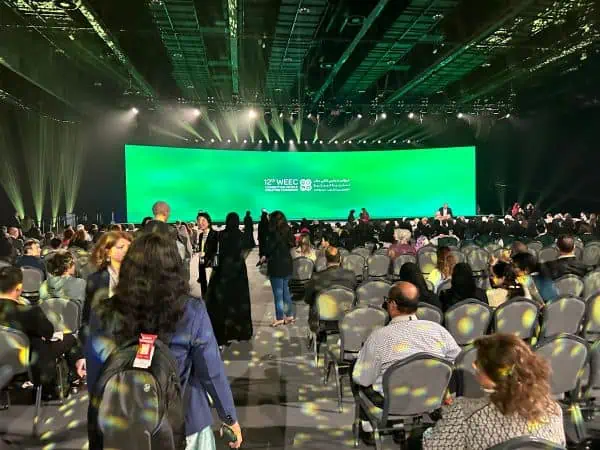
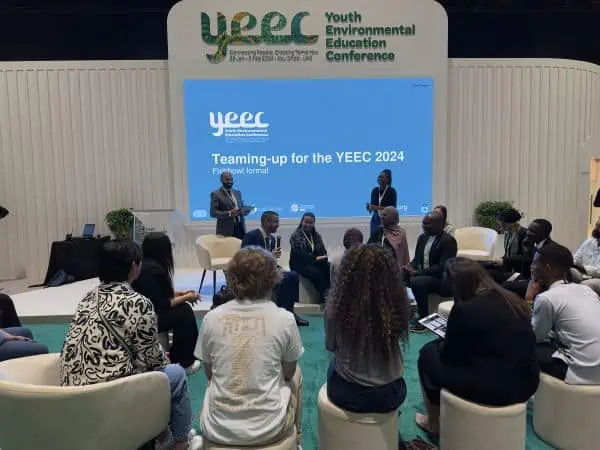
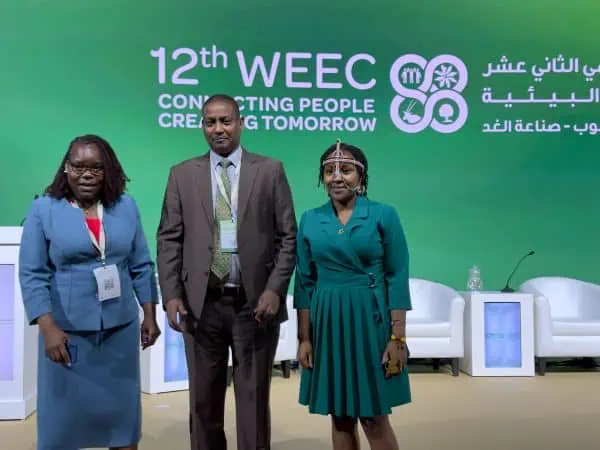
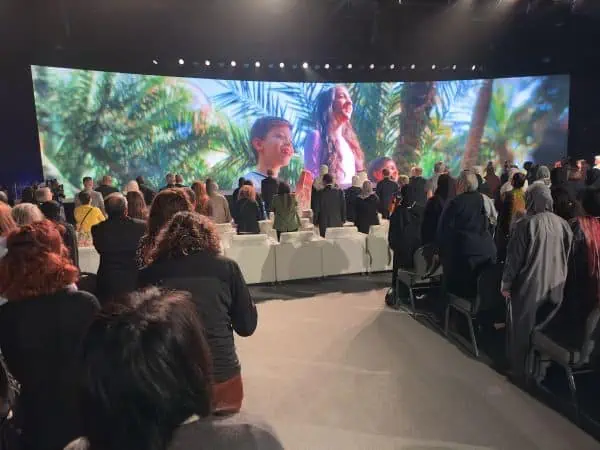
Plenary sessions were a highlight, featuring distinguished speakers who addressed pressing global challenges. Notable topics included aligning Environmental Education (EE) and Education for Sustainable Development (ESD) in the face of the Triple Planetary Crisis, breaking silos in EE and ESD through the water, food, and energy nexus, and championing sustainability through unity and cultural diversity.
From stimulating plenaries to practical workshops, the days were a testament to the commitment and innovation of environmental educators and professionals from around the world.
Plenary highlights
Plenary 1: Triple Planetary Crisis: Aligning EE and ESD
Her Highness Sheikha Shamma bint Sultan bin Khalifa Al Nahyan, President & CEO of UAE Independent Climate Change Accelerators, delivered a Keynote Address, inspiring attendees with her dedication and leadership in environmental advocacy. HE Razan Khalifa Al Mubarak, President of IUCN and Managing Director of Environment Agency Abu Dhabi, set the stage for WEEC2024’s enlightening journey. Starting with ‘The Challenges’ theme in the first Plenary, ‘Triple Planetary Crisis: Aligning Environmental Education (EE) and Education for Sustainable Development (ESD),’ underscored the crucial role of EE and ESD in addressing global challenges.
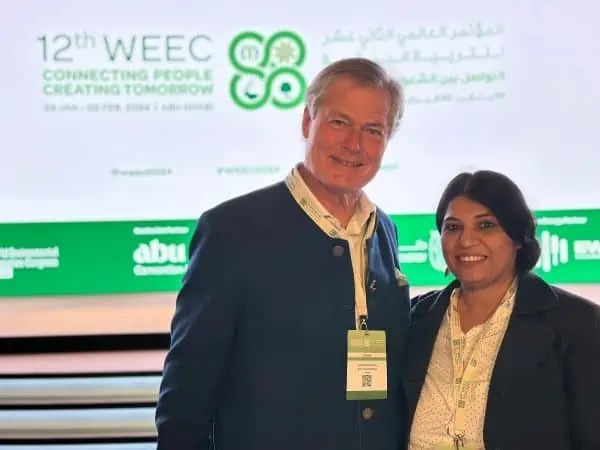
Plenary 2: Water, Food, and Energy Nexus: Breaking Silos in EE and ESD
Crucial discussions at WEEC2024 Plenaries with visionary leaders Najib Saab, Barry D. Solomon, Kavita Rai, and Rahmah Elfithri, led by moderator Heila Lotz-Sisitka. As we confronted the Triple Planetary Crisis, themes such as water and sanitation, energy, food, biodiversity and greening, pollution, health and well-being, waste management, and climate change continued to dominate discussions in environmental education systems across the world.
Plenary 3: Uniting the World for Sustainability: Championing EE and ESD Guided by the visionary perspectives of Mirian Vileda, Eureta Rosenberg, and Akpezi Ogbuigwe, this plenary set the tone for collective navigation towards sustainable objectives.
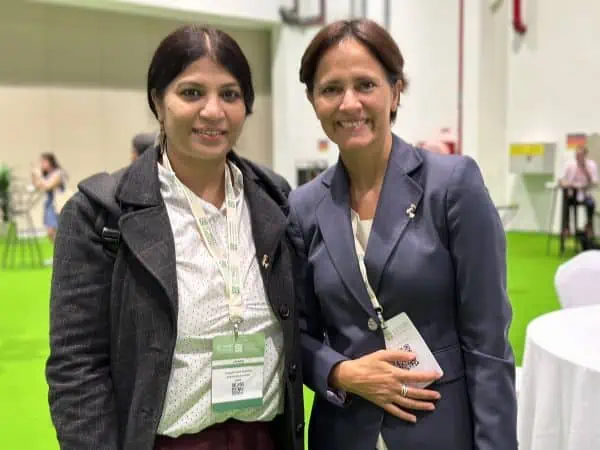
Plenary 4: Ethics, Emotions, and Aesthetics: Building the emotional Compass of EE and ESD
Lalla Nouzha Alaoui, Nujoom Al Ghanem, and Rohan Chakravarty explored how art and aesthetics shaped the emotional compass of Environmental Education, fostering an emotional connection with nature and society.
YEEC Programme – Rethinking Environmental Education within Indigenous Communities
Moderated by Hoor Ahli, COP 28 UAE Youth Climate Delegate, this dynamic session delved into the pivotal role of indigenous people in EE.
Plenary 5: Values and Cultural Diversity in EE and ESD
Speakers Mohammed Saleh Al Baidani, Dr. Anne Poelina, Lucie Sauvé, and Purnima Devi Barman celebrated diversity, learning from indigenous wisdom, and championing a more inclusive and sustainable world.
Plenary 6: Collaborating and Networking for EE and ESD
Global thought leaders emphasized the vital role of networking, global collaborations, and partnerships for building global citizenship, driving transformation, and expanding the impact of Environmental Education and Education for Sustainable Development.
Plenary 7: Outdoor and Place-based Learning in the Decade of Ecosystem Restoration
Insights from Dr. Peter Stanfield, Ginger Potter, Gayatri Raghwa, and Arabella Willing explored the crucial link of outdoor and place-based learning in connecting individuals with the natural environment.
Plenary 8: Mainstreaming EE and ESD in Early Childhood
This plenary explored challenges and opportunities for Early Childhood Education worldwide, addressing barriers to integrating Environmental Education and preparing young learners for the Triple Planetary Crisis.
Plenary 9: AI and Smart Technologies: Innovating and Scaling EE and ESD The final plenary illuminated the path to a sustainable future, emphasizing the pivotal role of embracing new technologies in Environmental Education and Sustainable Development.
Rewilding
The Rewilding Academy, recognizing the significance of the WEEC Congress in advancing capacity development, connected with project partners and network with participants from diverse backgrounds worldwide.
Together with the Environment Agency – Abu Dhabi (EAD) and Plant-for-the-Planet, the Rewilding Academy is actively engaged in two Education Challenges outlined in the UN Decade on Ecosystem Restoration Action Plan. As part of this initiative, we are developing an ecosystem restoration curriculum tailored for youth aged 10-16 years and students and young professionals aged 18-35 years.
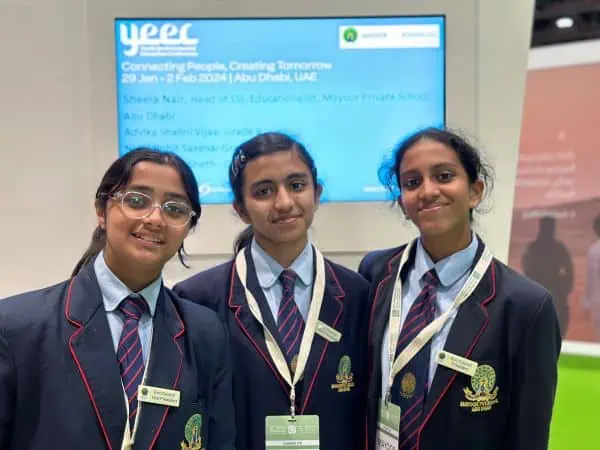
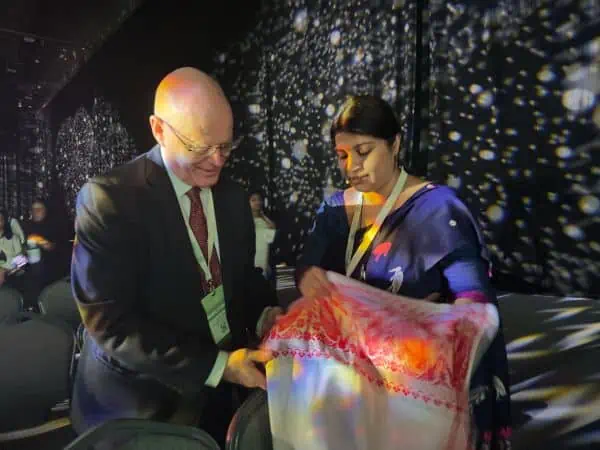
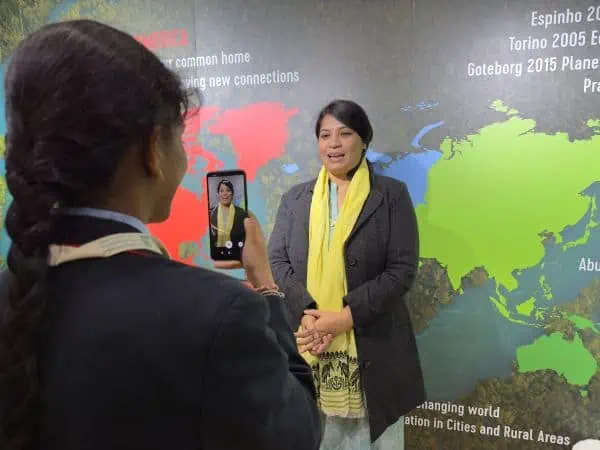
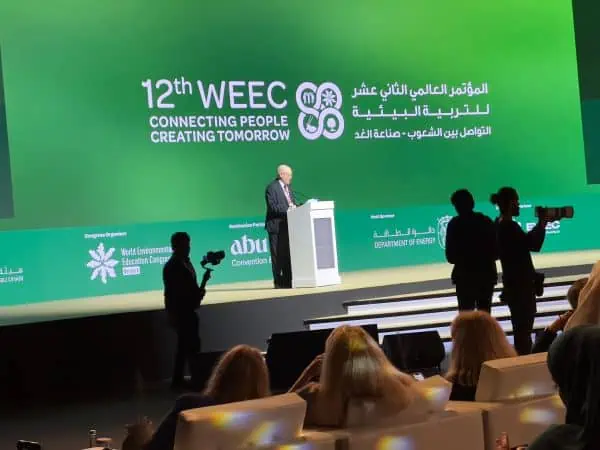
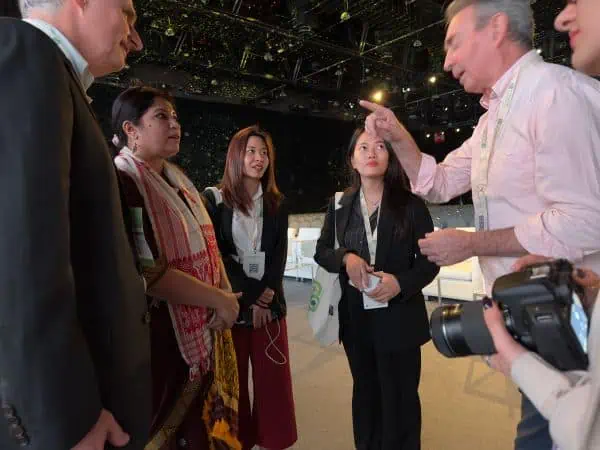
For ecosystem restoration we need a cadre of skilled restoration scientists, land and project managers, entrepreneurs, and practitioners. To address this need, restoration practitioners often need training across various disciplines and techniques, from natural and social sciences to project management and hands-on, operational restoration activities, ensuring knowledge and skills transfer.
During the congress, founder of the Hargila Army and Rewilding Academy director Purnima Devi Barman delivered an impassioned plenary talk on her pivotal work with the Hargila Army to safeguard and restore the habitats of the Greater Adjutant Stork in Assam, India. On the same day, Barman and Arend de Haas, director of Capacity Development, launched the two Education Challenges and facilitated an interactive workshop aimed at developing a high-level framework for an ecosystem restoration curriculum.
Participants exchanged valuable insights and expertise, fostering a collaborative spirit essential for addressing complex restoration challenges. By harnessing diverse perspectives and experiences, the workshop facilitated the co-creation of a comprehensive framework that not only guides curriculum development but also cultivates a shared vision for advancing ecosystem restoration efforts worldwide. Moving forward, the momentum generated from this event will serve as a catalyst for continued collaboration, ensuring the effective implementation of restoration initiatives and the nurturing of a sustainable future for generations to come.

